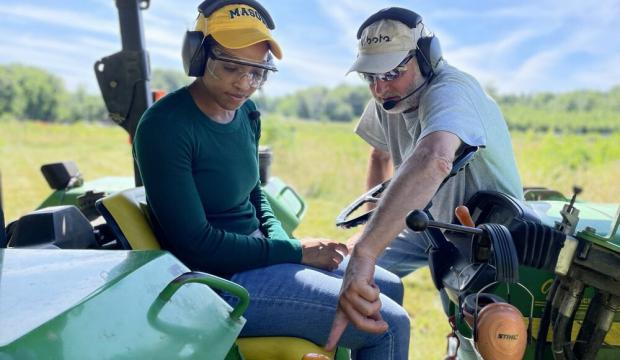
Breaking News
 BREAKING EXCLUSIVE: "This Wasn't Panic Buying Or Selling- IT WAS THEFT!"
BREAKING EXCLUSIVE: "This Wasn't Panic Buying Or Selling- IT WAS THEFT!"
 Somali Fraud is Miniscule Compared to Federal Reserve FRAUD
Somali Fraud is Miniscule Compared to Federal Reserve FRAUD
 Candace Owens Admits That Nevada Congressman Amodei Was Not Present...
Candace Owens Admits That Nevada Congressman Amodei Was Not Present...
 2025: The Year the Government Stopped Pretending It Cared About Freedom
2025: The Year the Government Stopped Pretending It Cared About Freedom
Top Tech News
 Laser weapons go mobile on US Army small vehicles
Laser weapons go mobile on US Army small vehicles
 EngineAI T800: Born to Disrupt! #EngineAI #robotics #newtechnology #newproduct
EngineAI T800: Born to Disrupt! #EngineAI #robotics #newtechnology #newproduct
 This Silicon Anode Breakthrough Could Mark A Turning Point For EV Batteries [Update]
This Silicon Anode Breakthrough Could Mark A Turning Point For EV Batteries [Update]
 Travel gadget promises to dry and iron your clothes – totally hands-free
Travel gadget promises to dry and iron your clothes – totally hands-free
 Perfect Aircrete, Kitchen Ingredients.
Perfect Aircrete, Kitchen Ingredients.
 Futuristic pixel-raising display lets you feel what's onscreen
Futuristic pixel-raising display lets you feel what's onscreen
 Cutting-Edge Facility Generates Pure Water and Hydrogen Fuel from Seawater for Mere Pennies
Cutting-Edge Facility Generates Pure Water and Hydrogen Fuel from Seawater for Mere Pennies
 This tiny dev board is packed with features for ambitious makers
This tiny dev board is packed with features for ambitious makers
 Scientists Discover Gel to Regrow Tooth Enamel
Scientists Discover Gel to Regrow Tooth Enamel
 Vitamin C and Dandelion Root Killing Cancer Cells -- as Former CDC Director Calls for COVID-19...
Vitamin C and Dandelion Root Killing Cancer Cells -- as Former CDC Director Calls for COVID-19...
Veterans, Military Spouses Cultivate a New Mission on the Farm: 'This is the place that relaxes

The Arcadia Center for Sustainable Food figured that veterans were perfectly cut out for farming, as the average vet is 45% more likely to start their own business, and aside from being physically fit, are used to enduring discomfort, waking up early, and being both self-reliant and a team player.
Looking to connect their need to perform a service for their communities with the needs of thousands of retiring military who reenter society every year, Arcadia created the Veteran Farmers Training Program.
Just a few miles from the Pentagon in Arlington, Arcadia trains veterans in the fundamentals of agriculture both in the field and in the class room. The veteran-owned center is partly veteran led as well.
Ephesia Sutton was in the US Army for 20 years, and now trains veterans like herself how to grow nutritious produce for their families and communities.
"I left the military with PTSD, depression, and anxiety, and I would rather be anywhere else when dealing with those symptoms. This is the place that relaxes me," said Sutton told Stars and Stripes from the fields of collard greens, cucumbers, bitter melon, peppers, spinach, kale, and tomatoes.
"Knowing the work that I'm doing every time I put my hands in the soil is going to provide for a family, for somebody in this community, that just gives me the push to be out here every day," Sutton said.
As military tend see the world and actions within it through the lens of "the mission," Arcadia is attempting to tackle two massive nationwide problems beyond anything to do with the food supply.
The average American farmer is 56 years old, and a dearth of 700,000 such agriculturalists is predicted to manifest over the next two decades. Meanwhile, the generation that enlisted to fight in the Global War on Terror is now retiring from the services in larger and larger numbers.
Many of these veterans are returning like Sutton—with PTSD and other emotional trauma from witnessing the tragedy and failures in the occupations of Iraq and Afghanistan.
New missions, new opportunities to serve are vital, as Sutton has learned.
The Solution according to Arcadia is to pay veterans to learn how to farm. Help them find affordable land. Provide easy market access for the food they produce to satisfy the robust and growing public demand for organic or local produce, and lastly reinvigorate the farming sector with skilled new growers, eager to begin their next phase of life.



